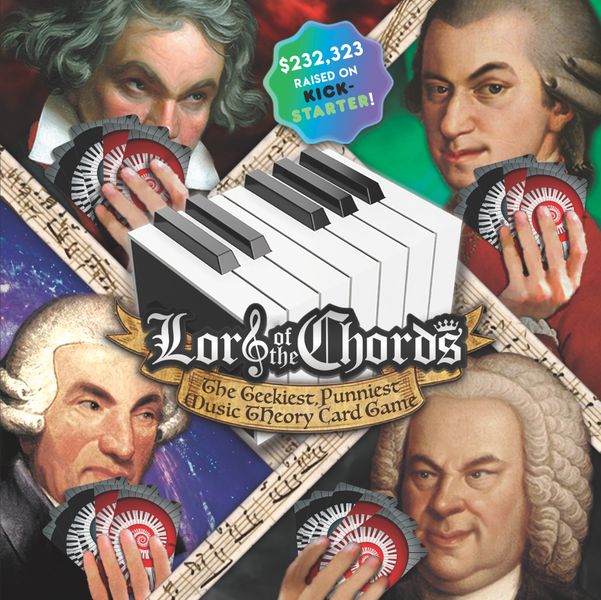Lord of the Chords: The Geekiest, Punniest Music Theory Card Game (2019) Board Game
Lord of the Chords is a music theory card game designed by Keith Teo and published in in 2019. It is a fun and educational game that combines elements of open drafting, set collection, take that, and variable player powers. The game is designed for 2-4 players, with a recommended age of 14 and up.
Game Components of Lord of the Chords: The Geekiest, Punniest Music Theory Card Game
How To Setup Lord of the Chords: The Geekiest, Punniest Music Theory Card Game
To set up the game, players start by choosing an instrument tile, each of which has specific powers and advantages. For example, the bass card allows for a ‘walking bass’ power, while the vocalist is immune to rests. Next, players draw Note and Action cards, and the game begins with the objective of forming chords according to the chosen key signature. The rulebook provides step-by-step instructions with diagrams to help new players get started quickly.
Gameplay Mechanics and Game Objective
– Building chords using Note cards
– Using Action cards to create surprises and challenges
– Utilizing Accidental tokens strategically
– Leveraging instrument-specific powers
Player Experience
**Lord of the Chords** offers a dynamic and educational experience, transforming music theory lessons into fun and engaging gameplay. Players enjoy major laughs, minor learning, and an augmented love for music theory. The game is geeky, punny, and full of musical inside jokes, making it appealing to both music enthusiasts and board game fans. The game’s design includes easier variants for beginners, ensuring it is accessible to a wide range of players.
Pros
Cons
Personal Thoughts on Lord of the Chords: The Geekiest, Punniest Music Theory Card Game
**Lord of the Chords** is ideal for music students, teachers, and enthusiasts who want to make music theory more enjoyable and interactive. It is also a great choice for board game fans looking for a game that combines strategy with a unique theme. The game’s ability to balance fun and learning makes it a valuable tool in music education, such as in piano parties and music camps. Overall, it is a must-have for anyone looking to augment their music theory knowledge with a dash of humor and excitement.
We are supported by our audience. When you purchase through links on our site, we may earn an affiliate commission, at no extra cost for you. Learn more.

